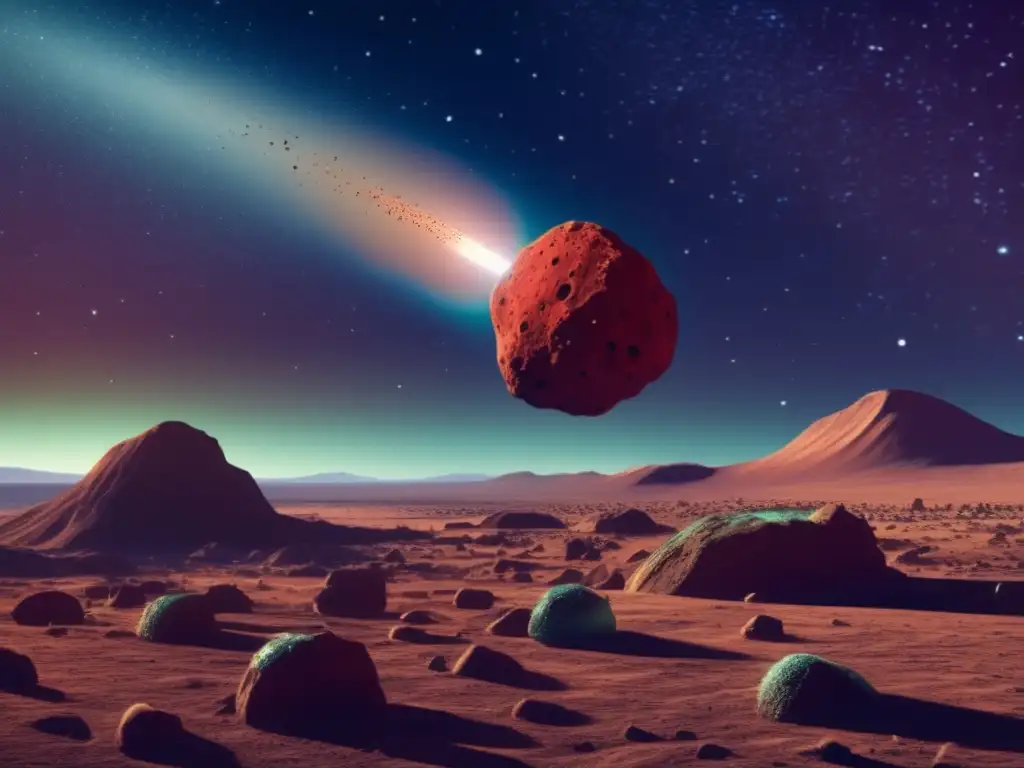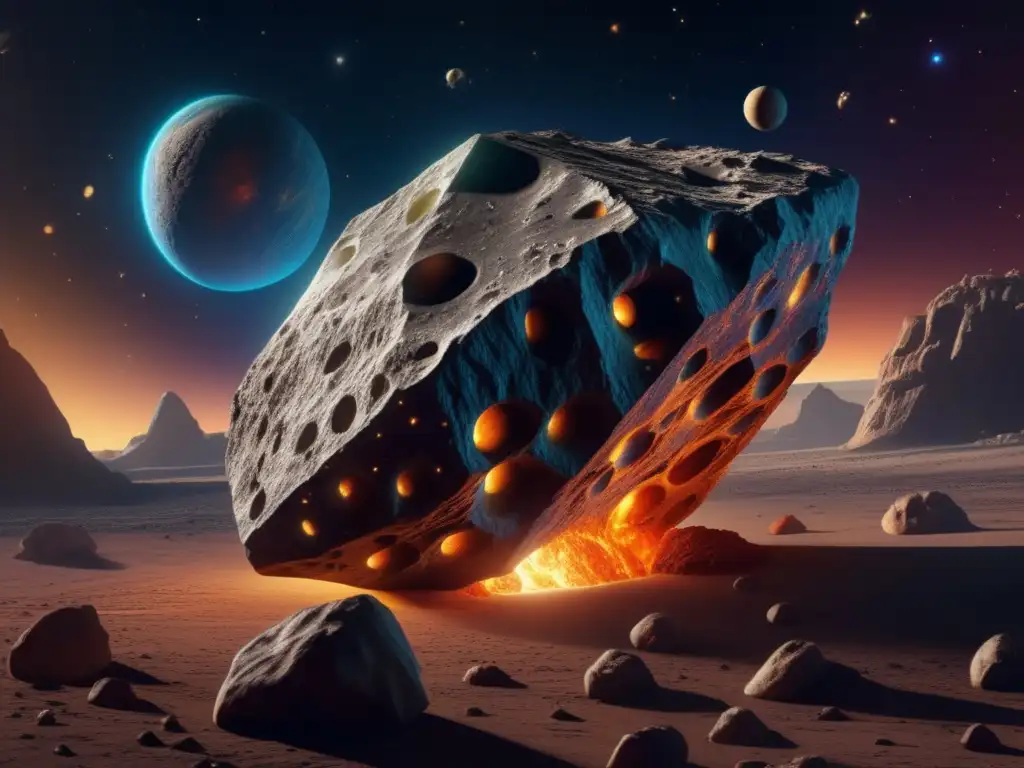Life's Cosmic Carousel: Asteroids As Vehicles For Panspermia

Introduction
The concept of panspermia, the idea that life exists throughout the universe and is spread through space by various mechanisms, has fascinated scientists and science fiction writers for decades. One proposed mechanism for panspermia is asteroid transport. In this article, we explore the possibility of asteroids as vehicles for panspermia.
Asteroids and Extraterrestrial Life

What are asteroids?
Asteroids are small, rocky bodies that orbit the sun. They are believed to be remnants from the early formation of the solar system and are located primarily in the asteroid belt between Mars and Jupiter. There are also asteroids known as Near Earth Objects (NEOs) which have orbits that bring them closer to Earth. Both types of asteroids have been studied extensively by astronomers and planetary scientists for decades.
What is panspermia?
Panspermia is the hypothesis that life on Earth may have originated from extraterrestrial sources, either by direct transfer of microorganisms or by simple organic molecules that eventually evolved into life forms. This idea has gained renewed interest in recent years due to advances in astrobiology and the discovery of potentially habitable exoplanets.
How can asteroids transport life?
Asteroids could potentially transport microorganisms or organic molecules across vast distances of space. The harsh conditions of space, including radiation and extreme temperatures, may actually help protect these organisms from harm during transit. Upon impact with a planet, an asteroid could release its cargo, potentially seeding life on that planet.
The Evidence for Asteroid Transport of Life

Meteorites and their contents
Several meteorites that are believed to originate from asteroids have been found to contain organic molecules, including amino acids, the building blocks of life. While it is still a matter of scientific debate whether these molecules were formed in space or on Earth, their presence suggests that asteroids could indeed be carrying the precursors to life. Additionally, microfossils have been found in some meteorites, indicating the possibility that life may have existed on asteroids.
The discovery of tardigrades on the Moon
In 2019, the Israeli Beresheet lunar lander crashed onto the Moon carrying a small container of tardigrades, microscopic animals capable of surviving extreme environments. While it is unknown whether the tardigrades survived the crash and the harsh lunar conditions, this experiment demonstrated the possibility of transporting hardy organisms on spacecraft to other celestial bodies.
The distribution of life on Earth
There are several instances of identical or highly similar organisms being found in widely separated parts of the world that cannot be explained by conventional means of migration. This has led some scientists to propose that these organisms may have arrived via asteroid impact. Additionally, some extremophile microorganisms, capable of surviving in extreme environments, have been found to be almost identical to species found on asteroids, further supporting the possibility of asteroid transport of life.
The Challenges of Asteroid Transport of Life

The harsh conditions of space
Asteroids and their potential passengers would have to survive the harsh conditions of space, including radiation and extreme temperatures. While some organisms may be able to survive these conditions, it remains unclear how well they would fare during long periods of transit.
The likelihood of impact
The chances of an asteroid impacting a planet with habitable conditions are relatively low. Additionally, even if an impact occurred, there is no guarantee that life would survive the initial impact or thrive on the new planet.
The unknown mechanisms of panspermia
While asteroid transport is one proposed mechanism for panspermia, there are likely many other ways in which life could be transported between celestial bodies. Until we have a better understanding of these mechanisms, it is difficult to determine the likelihood and frequency of asteroid transport of life.
Frequently Asked Questions

-
Could life have originated on asteroids?
This is still a topic of scientific debate. While some scientists believe that life may have started on asteroids and then been transported to Earth, others argue that the harsh conditions of space make this unlikely.
-
What is the likelihood of an asteroid impacting Earth?
The likelihood of a large asteroid impacting Earth is relatively low, but still possible. NASA and other agencies monitor potentially hazardous objects and work to develop strategies for mitigating the risk of impact.
-
Could we intentionally use asteroids to transport life to other planets?
This is a topic of ongoing research and speculation. While it is theoretically possible, it remains unclear how practical this would be and what the potential risks and benefits would be.
-
How do we study asteroids?
Asteroids are studied through a variety of methods, including spacecraft missions, remote sensing, and telescopic observations. NASA's OSIRIS-REx mission is currently studying the asteroid Bennu up close, while the upcoming Lucy mission will explore several Trojan asteroids.
-
What can we learn from studying asteroids?
Studying asteroids can help us better understand the early formation of the solar system, the potential risks of asteroid impacts, and the possibility of extraterrestrial life.
Conclusion
Asteroids represent a fascinating and potentially important avenue for panspermia and the spread of life throughout the universe. While there is still much we do not know about this process, ongoing research and exploration will continue to shed light on this intriguing topic.
We encourage our readers to share their thoughts and questions on this topic in the comments section and to engage with asteroidrealm.com through subscribing, sharing articles on social media, or other forms of participation. Thank you for taking the time to read this article.
Additional Resources

For those interested in delving deeper into the topic of asteroids and extraterrestrial life, we recommend the following resources:
 Seeding Life Across The Universe: The Role Of Asteroids
Seeding Life Across The Universe: The Role Of Asteroids Asteroids: Potential Carriers Of Primordial Life
Asteroids: Potential Carriers Of Primordial Life Life Among The Asteroids: Fact Or Fiction?
Life Among The Asteroids: Fact Or Fiction?If you want to discover more articles similar to Life's Cosmic Carousel: Asteroids As Vehicles For Panspermia, you can visit the Asteroids and Extraterrestrial Life category.
Leave a Reply

Articulos relacionados: